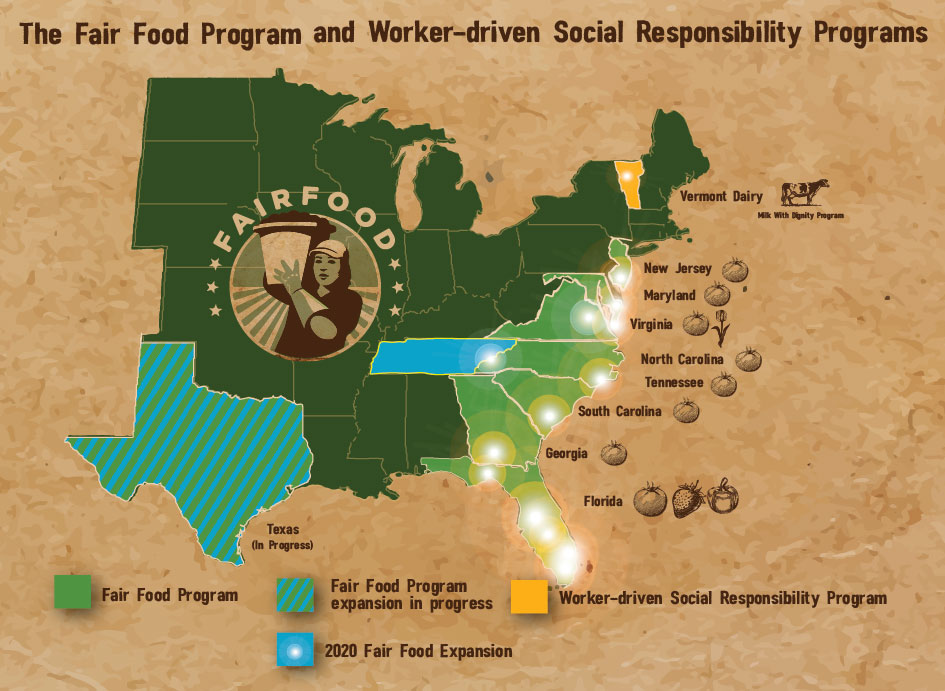As 2020 creeps to a close, reflections on one of the most brutal years in living memory are rolling in. The “2020 Year in Review” headlines paint an unmitigatedly grim picture:
“With 300,000 COVID-19 deaths and counting, U.S. faces unfathomable loss”
“George Floyd, From ‘I Want to Touch the World’ to ‘I Can’t Breathe’”
“The record-shattering 2020 hurricane season, explained”
“Thunderstorms trigger hundreds of wildfires in California, prompting evacuations as a record-breaking heatwave taxes state’s power grid”
But despite the staggering losses, and the seemingly infinite challenges, of 2020, we cannot forget that there were a few rays of light that broke through the darkness. Neighbors helping neighbors in communities devastated by natural disasters; a massive national uprising demanding an end to generations of police violence and systemic racism; an historic election with an unprecedented turnout that held the line against an onslaught of disinformation and authoritarianism, and that broke new ground for our country — the first Black and Asian-American woman elected by the American people to help lead the nation as Vice President. In case after case, people in communities large and small came together — across lines that we are told over and over again divide us — to protect each other and fight for greater equality and justice.
And despite the powerful headwinds of 2020, the Fair Food Program proved its mettle this year, too, as a sustainable, scalable model that can survive — and even thrive — in a world beset by roiling political tides and an unprecedented global pandemic. Indeed, in the realm of Fair Food news, the headlines told a story of hope and progress this past year:
“After #MeToo, This Group Has Nearly Erased Sexual Harassment in Farm Fields”
“Fair Food Program expansion marches on, even in these difficult times”
“Largest cut flower farm on US East Coast joins the Fair Food Program”
“10-year, independent study cites Fair Food Program, Worker-driven Social Responsibility model as leading examples of new ‘gold standard,’ with effective mechanisms for ’empowering rights holders to know and exercise their rights’…”
In 2021, we need to expand the Fair Food Program — and the broader Worker-driven Social Responsibility model it gave rise to — farther than ever before, and you can make that possible. Click here to donate today!
In Vermont, the Milk With Dignity Program entered its third year, bringing fundamental human rights and life-saving health and safety protections during the COVID-19 pandemic to hundreds of essential dairy workers across the Northeast. As the second fully-fledged Worker-driven Social Responsibility Program in the U.S., with deep roots in the Fair Food Program, the Milk With Dignity program is transforming the dairy industry.
No one captures the program’s impact better than dairy workers themselves, as documented in the Milk With Dignity Program’s first-ever biennial report:
“Before the program, if we wanted face masks, we would have to buy them ourselves. Breathing in that dust every day — the dried manure — it gets in your lungs and makes you sick. But with the program, we talked with the boss and now he provides masks, safety glasses, anything we need to keep ourselves safe. Before we didn’t have any power; with the program we know what we can demand. We know our rights as workers.”
“We know exactly who to go to if we need support. I can call the support line with any little thing, even if it’s just to help with translation. It’s good for both the farmer and the workers… Having each worker feel safe to speak our mind is so important. We don’t feel afraid anymore, we have the freedom to say what we want, without fear.”
“The education [session] helped me learn a lot of things because now we know our rights and that we have the freedom to speak up. Before we didn’t say anything because it was always: “Will they fire us? What will they say?” Not anymore. Now we speak up without fear that we’ll be fired.”
We know that the WSR model holds promise well beyond the confines of the food industry. It has served as a blueprint for empowerment and human rights from Bangladesh to Lesotho, providing workers in apparel sweatshops, construction sites, and poultry factories a new, and proven, path forward toward fairer pay and working conditions. The challenges of 2020 have proven that the WSR model, with its origins in the historically regressive and brutal agricultural industry, can truly survive anything. That’s why we’re focused this coming year on not only expanding the Fair Food Program, but expanding the broader Worker-driven Social Responsibility model as well, to new industries, states, countries, and continents around the globe.
In 2021, human rights for essential workers should be the norm, not the exception. Help us grow the WSR model this year by donating today.

